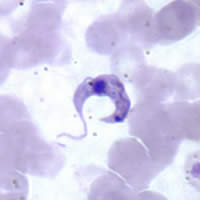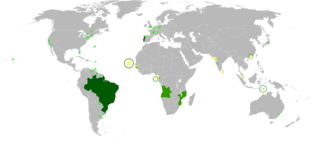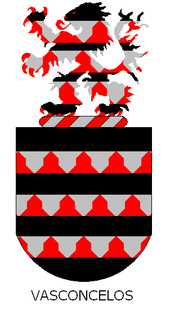Chagas may refer to:
Contents
- Chagas disease
- 9483 Chagas, a main-belt asteroid
- a Portuguese-language family name, translating to wounds

Chagas disease, also known as American trypanosomiasis, is a tropical parasitic disease caused by the protist Trypanosoma cruzi. It is spread mostly by insects known as Triatominae, or "kissing bugs". The symptoms change over the course of the infection. In the early stage, symptoms are typically either not present or mild, and may include fever, swollen lymph nodes, headaches, or local swelling at the site of the bite. After 8–12 weeks, individuals enter the chronic phase of disease and in 60–70% it never produces further symptoms. The other 30–40% of people develop further symptoms 10–30 years after the initial infection, including enlargement of the ventricles of the heart in 20–30%, leading to heart failure. An enlarged esophagus or an enlarged colon may also occur in 10% of people.

Portuguese is a Western Romance language originating in the Iberian Peninsula. It is the sole official language of Portugal, Brazil, Cape Verde, Guinea-Bissau, Mozambique, Angola, and São Tomé and Príncipe. It also has co-official language status in East Timor, Equatorial Guinea and Macau in China. As the result of expansion during colonial times, a cultural presence of Portuguese and Portuguese creole speakers are also found in Goa, Daman and Diu in India; in Batticaloa on the east coast of Sri Lanka; in the Indonesian island of Flores; in the Malacca state of Malaysia; and the ABC islands in the Caribbean where Papiamento is spoken, while Cape Verdean Creole is the most widely spoken Portuguese-based Creole. A Portuguese-speaking person or nation may be referred to as "Lusophone" in both English and Portuguese.









